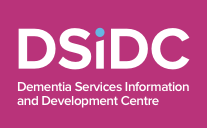Click here to download Programme
Professor Brian Lawlor, Director of the MIRA Memory Clinic
It is a great pleasure to welcome you all to our 7th Memory Clinic Conference co-hosted by DSIDC and Mercer’s Institute for Successful Ageing. This year’s conference theme is ‘The difficult to diagnose dementias’. Many cases of dementia can be hard to diagnose, particularly in the face of co-morbidities and where there are behavioural and personality changes and an overlap with psychiatric illness. The multidisciplinary, multi-professional approach of a Memory Clinic has much to offer in this regard as it can provide access to different specialties, imaging modalities and biomarker testing that can be helpful and informative in these challenging situations. While the Memory Clinic Network is growing throughout Ireland and there are many committed clinicians providing a great service from within existing resources, we need strategic thinking and forward planning if we are to develop the best assessment service for our patients. The National Dementia Strategy quite rightly puts emphasis on the training, education and upskilling of GPs in dementia diagnosis and management; however, GPs still need the support of secondary care specialists and tertiary care Memory Clinic services for confirmation of the diagnosis of dementia particularly in the more complex and atypical cases. It would be both impractical and financially unviable to have a Memory Clinic in every town. However, I would argue that a regional network of Memory Clinics that have the appropriate staffing, neuropsychological expertise and imaging modalities and that links back to a primary care system with the right support services in place, including the full array of allied health professionals, would go a long way to fill the current gaps in access and care.
This conference will deal with the assessment and management of the difficult to diagnose cases, the very cases that warrant specialist assessment in our Memory Clinics. We will hear the latest information on fronto-temporal dementia from Professor Tim Lynch and Dr Ted Huey. Professor Julie Snowden will be exploring the difficulties in diagnosing and managing semantic dementia. We will also learn about the sometimes controversial area of alcoholic dementia from Professor Ken Wilson. Dr Justin Kinsella will discuss the topic of genetic Alzheimer’s disease, a subject that families are often concerned about. Dr. Clíona Ní Cheallaigh and Dr Mircea Balasa will speak on dementia in the homeless community and CSF biomarkers to support AD diagnosis respectively and Dr. Clodagh Power will review the relatively new concept of behavioural variant phenocopies.
This conference is an opportunity to learn something new about dementia but most importantly to renew old acquaintances, make new friends and colleagues and to grow and develop our Memory Clinics network. We hope to have the Healthlink national standardised electronic referral form for Memory Clinics up and running over the next number of months and trial a new Memory Clinic teleconferencing initiative later this year. There’s lots happening in the Memory Clinics space and let’s continue to build out our network!
Speakers
Dr Mircea Balasa – Click here to download presentation
Mircea Balasa is a cognitive neurologist with a medical degree from Lérida University in Spain. He is currently working at the Alzheimer’s Unit at Hospital Clinic of Barcelona, where he served as Chief Resident in Neurology. Balasa received the Emili Letang Award in 2010, at the close of his residency.
Dr Clíona Ní Cheallaigh – Click here to download presentation
Clíona Ní Cheallaigh is an Infectious Diseases and Internal Medicine Physician in St James’s Hospital and Assistant Professor in Medical Gerontology. Her clinical and research interests centre around the health of multiply excluded individuals: homeless people, injecting drug users and other marginalised groups.
Dr Clodagh Power – Click here to download presentation
Dr Clodagh Power graduated from Trinity College Dublin in 2008. After completing her medical BST she began training in Psychiatry with the TCD Deanery. She is currently completing a 2 year clinical and research fellowship with the MIRA Memory Clinic.
Prof Julie Snowden – Click here to download presentation
Julie Snowden is consultant neuropsychologist in the Cerebral Function Unit, Greater Manchester Neuroscience Centre, Salford Royal NHS Foundation Trust. She is also honorary Professor of Neuropsychology in the University of Manchester.
Prof Ken Wilson – Click here to download Presentation
Professor Ken Wilson has spent much of his working life in the research into depression in older people. Clinically, he has been involved in working with people under the age of 65 suffering from dementia. This field of expertise provided a springboard for the development of services for people with alcohol related brain damage (ARBD). Apart from running a small NHS team that specialises in the management and cognitive/behavi oural rehabilitation of people with ARBD, he also works with community alcohol treatment services in the recognition and adaptation of services to cater for people with less severe cognitive damage. Prof Wilson was lead editor in developing the National Guidelines for the management of Alcohol Related Brain Damage (RCPsych CR185).
